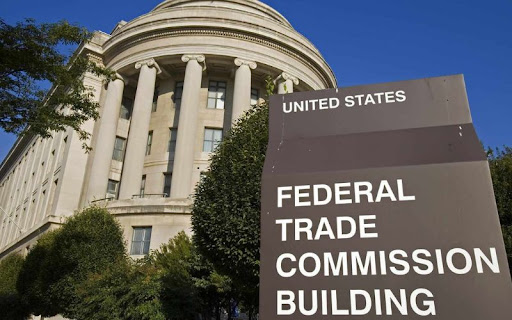
In the ever-evolving landscape of affiliate marketing, staying up-to-date with regulatory changes is crucial to maintaining trust and transparency between businesses and consumers. Recently, the Federal Trade Commission (FTC) released new disclosure guidelines that have a profound impact on influencers, content and review sites, advertisers, and agencies in the affiliate marketing space. Recently, our affiliate team at eAccountable participated in a Performance Marketing Association’s webinar on this very subject.
Let’s dive into the key takeaways from the FTC’s updated guidelines and discuss their implications for affiliate and influencer marketing.
FTC’s Updated Endorsement Guides
The FTC’s Endorsement Guides serve as a cornerstone for ensuring honesty and transparency in advertising. They revolve around a simple yet critical principle: endorsements must be honest and not misleading. If an endorsement implies an opinion or belief that the marketer couldn’t legally make, it is deceptive.
One of the key aspects emphasized by the Guides is the disclosure of connections between endorsers and marketers. If there’s a connection that a significant minority of consumers wouldn’t expect and that could impact their evaluation of the endorsement, it must be disclosed clearly and conspicuously. The rationale behind this is straightforward: consumers have a right to know about any relationships that could influence an endorsement.
Who Is Liable for Non-Disclosure?
A significant point of discussion in our recent webinar on FTC is the liability when an affiliate or influencer fails to disclose their connection with the brand. The FTC expects both endorsers and the marketers they’re affiliated with to adhere to these guidelines. Failure to do so could result in legal repercussions for both parties.
To put it simply, if an affiliate is getting commission from a brand, they need to be transparent about it, or they could face legal repercussions.
Monitoring Disclosure Sufficiency
Another question revolves around monitoring the sufficiency of disclosures. The responsibility for ensuring proper disclosure largely falls on the endorsers themselves. However, marketers must also play a role in educating their affiliates and influencers about the importance of disclosure and monitoring compliance.
“Affiliate” vs. “Expert” in the Guides
The FTC’s updated guidelines also address the distinction between being an “affiliate” and an “expert” for the purposes of the Guides. This distinction can impact the level of expertise an endorser is expected to have when endorsing a product or service. Clarifying this distinction is essential for both marketers and endorsers to comply with the Guides effectively.
This particularly affects influencers – just because they are an influencer in the vertical where the product or service is being sold, doesn’t qualify them as an “expert”. And this makes it essential for influencers and similar affiliates to disclose their level of expertise when promoting a product.
Changes Affecting Review Sites
For those in the business of review sites, understanding the new changes brought about by the FTC guidelines is crucial. Basically, reviewers who are paid by a business to give a glowing review need to disclose that financial relationship in their review. This will introduce significant alterations in how review sites handle endorsements, emphasizing the need for even greater transparency.
What’s Next?
In conclusion, the FTC’s updated disclosure guidelines have significant implications for affiliate and influencer marketing, impacting influencers, content and review sites, advertisers, and agencies alike. Staying informed and adhering to these guidelines is essential for maintaining consumer trust and ensuring compliance with the law.
We highly recommend watching our webinar discussing the FTC Disclosure Updates and reading the Endorsement Guides to gain a comprehensive understanding of these changes. We found this article from the Marketing Brew to be helpful as well.
Staying compliant with regulatory changes is not just a legal necessity but also a way to build and maintain credibility in the eyes of consumers.
Need an experienced team to help you confidently navigate these new affiliate marketing regulations? eAccountable has been at the pioneer of affiliate marketing since it was founded in 2000 – we’ve worked our way through FTC regulation updates like this before and we can do it again.
Interested in learning more? Drop us a line here for a free consultation.
